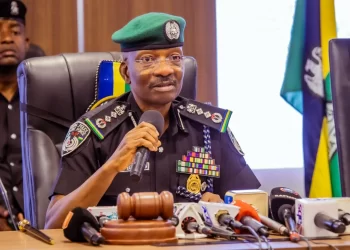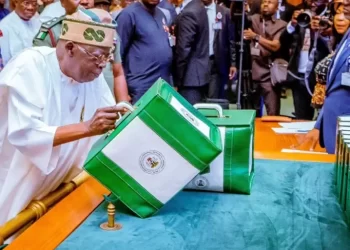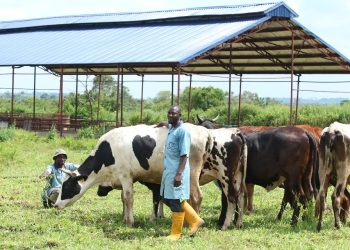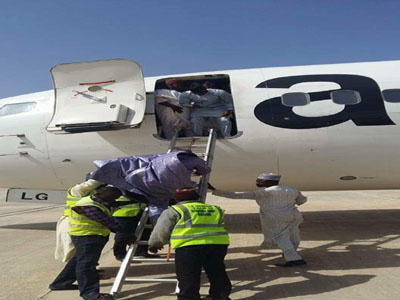Ten institutions of higher learning are under the searchlight with visitation panels constituted recently by the Federal Government to critically look into their activities. The action came amid a deluge of allegations and petitions from various stakeholders. Our universities have become anything but centres of learning. They badly need revival and committed administrators in order to deliver quality education to the teeming Nigerian youths angling for it.
Among the panels’ terms of reference are probing financial mismanagement, abuse of due process, irregularities in recruitment and promotion, power tussle within councils and sexual harassment. The Minister of Education, Adamu Adamu, in justifying the mission of these fact-finding committees, said allegations and counter-allegations had bred mistrust and hostility, which “hindered the smooth conduct of academic activities to the detriment of the students.”
The affected schools are: University of Nigeria, Nsukka; University of Calabar; University of Abuja; Michael Okpara University of Agriculture, Umudike; the University of Uyo; Federal University, Kashere and Federal University, Dutsin-ma. Others are Yaba College of Technology, Lagos; Federal Polytechnic Auchi; and Federal Polytechnic Oko, Anambra State.
Since December 2013, the UNN has been a cauldron of unease, set off by the inexplicable removal of its Chairman/Pro-Chancellor, Emeka Enejere, after barely a year in office, by the then Minister of Education, Nyesom Wike. He replaced him with his own man, Emmanuel Ukala. Four unions, led by the local Academic Staff Union of Universities, protested, just as they levelled corruption charges against the authorities. For exposing a colleague with a questionable academic claim, Ugochukwu Uche, a professor of accountancy, was fired. The university’s Governing Council did not even mind that he had dragged it to the National Human Rights Commission and the House of Representatives Committee on Public Petitions as he sought the right to fair hearing.
Last month, resident doctors at the University of Nigeria Teaching Hospital, Ozalla/Enugu, blew the lid off the infrastructure decay there with the ugly narrative of how surgeries were done with candle light and torchlight. A rebuttal from the hospital’s spokesman, Cyril Keleze, which also emphasised the availability of “boreholes recently sunk by the management,” inadvertently exposed the problem of neglect it had tried to cover.
At the Yaba College of Technology, the alleged N5 million monthly security vote for its provost is a sticking point; much as the non-refund of N63,000 bed space fee to students who never enjoyed the facility before graduation, questionable appointments and promotions and stifling of dissent have been resonant at the Agriculture University in Umudike. These have orchestrated a pitched battle there.
But other federal academic institutions not covered by these visitations do not fare better. It is a common story of a systemic breakdown that has reduced even some of our once highly-rated universities to glorified secondary schools. This is why the government should extend this enquiry to all of them.
It is unthinkable that a basic need such as water, which most Nigerian families provide for themselves by digging boreholes, is a luxury most university administrators cannot provide for students. This has turned students’ hotels to eyesores: no toilets, bathrooms and laundry facilities. Sensing danger, the authorities of the Obafemi Awolowo University, Ile-Ife, on November 30, hurriedly shut down the institution as students embarked on a protest over lack of potable water and unstable electricity supply.
The University of Calabar was shut down in October for similar reasons; the UNN, and the University of Ibadan had had their own turn. At the University of Lagos, Akoka, students went berserk in October over their bed-bug-infested mattresses, which they displayed at the entrance gates. If these non-negotiable or basic services are lacking on our campuses, we wonder what the authorities use the sundry fees they charge students for.
Some of these shortcomings were captured in the 2013 Needs Assessment of Nigerian Public Universities report, tabled before the Federal Executive Council meeting on November 1. Clearly, it stated, “students cannot get accommodation, where they get, they are packed like sardines in a tiny room;” and “No light (electricity) and water in hostels, classrooms and laboratories,” among other inadequacies. While funding is apparently inadequate, and therefore central to the crisis, more critical is the lack of judicious utilisation of available resources. In an attempt to get kickbacks, many school authorities award fresh contracts instead of completing inherited projects. This explains why our campuses are littered with abandoned projects.
Governing councils, senates and vice-chancellors of universities where basic laboratory tools for learning such as Bunsen burners are lacking now, shamefully replaced with kerosene stoves, as is the case with many; where it has become traditional for students to buy marks, or female students rampantly obtain them through inappropriate relationships with the male lecturers; where more students are admitted than carrying capacity of their schools, just to rake in money they don’t account for, have no business with university administration.
There should be irreducible minimum standards for our universities. Vice-chancellors and their councils found by these probe panels to have been remiss in their duties should not be spared. It is just as well that these enquiries are coming on the heels of President Muhammadu Buhari’s vow last month to extend his anti-graft campaign to the Ivory Tower. They will be a lot better if government ceased appointing individuals without any knowledge of the academic environment as chairmen of councils.
Ideal occupants for such exalted chairs and members of council should be individuals of achievement, with demonstrable leadership in their various callings; men who will even give part of their wealth to these universities, rather than seek to exploit their scarce resources, acquire latest vehicle models as official cars, and also accept jumbo allowances.
Indeed, if the OAU is Nigeria’s best in the latest Webometric ranking of universities, occupying 2004th position globally, and 25 th in Africa, it shows how our universities are a century behind their peers in research and learning that drive today’s world.











































